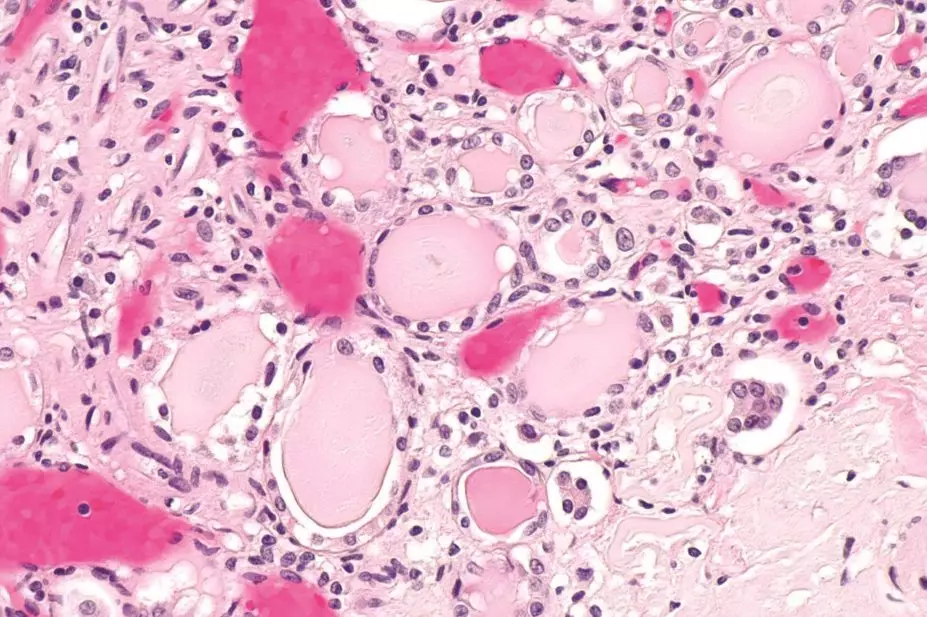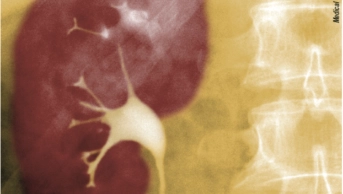
Wikimedia Commons
A blood pressure target below 140/90mmHg for patients with chronic kidney disease (CKD) who are at risk of cardiovascular disease is safe and may prevent premature death, a study has found.
Reporting their findings in the August 2016 issue of the Journal of the American Society of Nephrology
[1]
, researchers based their conclusions on long-term follow up of CKD patients who were originally enrolled in two earlier trials involving intensive blood pressure lowering.
“Our findings suggest that, during long-term follow-up, strict blood pressure control does not delay the onset of end-stage renal disease but may reduce the relative risk of death in chronic kidney disease,” they say.
“We believe that our data offer useful evidence of the long-term association between intensive blood pressure control and renal and non-renal outcomes.”
The team set out to discover the risk of end-stage renal disease (kidney failure) and mortality in 1,067 patients with CKD who were involved in the African American Study of Kidney Disease and Hypertension (AASK), in which participants were exposed to ‘strict’ blood pressure controls (mean arterial pressure ≤92mmHg) or ‘usual’ controls (102–107mmHg).
Some 14.4 years after taking part in the study, 397 of the follow-up patients had developed kidney failure and 475 patients had died.
Compared with the usual target group, patients in the strict treatment group had unadjusted and adjusted relative risks of kidney failure of 0.92 (95% confidence interval [CI] 0.75–1.12) and 0.95 (95% CI 0.78–1.16; P=0.64), respectively.
When the researchers compared death rates between the two groups, they found the unadjusted and adjusted relative risks for usual and strict groups were 0.92 (95% CI 0.77–1.10) and 0.81 (95% CI 0.68–0.98; P=0.03), respectively.
A meta-analysis, which involved pooling patient data from both the AASK study and the Modification of Diet in Renal Disease trial, led the researchers to calculate that the unadjusted relative risk of kidney failure was 0.88 (95% CI 0.78–1.00) and of death 0.87 (95% CI 0.76–0.99) for strict versus usual blood pressure patient groups.
According to Will Herrington, senior clinical research fellow at the University of Oxford and honorary consultant nephrologist at the Oxford University Hospitals kidney unit, blood pressure control is an important issue for patients with CKD. “Nearly every healthcare consultation with a kidney patient will involve an assessment of blood pressure and the majority of patients take at least one blood pressure modifying treatment.
“The aim of lowering blood pressure in this high-risk population is to reduce the risk of progression of chronic kidney disease and/or cardiovascular risk, but there is still considerable uncertainty about the optimum target blood pressures in this population,” he adds.
Herrington says this latest research is “a useful exercise” because the original studies “left uncertainty as to the benefit of intensive blood pressure lowering on both renal and cardiovascular disease”.
“The claim that the new long-term follow-up data demonstrate a benefit on all-cause mortality is an interesting and important finding,” he adds, “particularly if there are reductions in the types of mortality that might plausibly be modified by antihypertensive therapy (e.g. cardiovascular and renal causes of death).”
References
[1] Ku E, Gassman J, Appel L et al. Blood pressure control and long-term risk of ESRD and mortality. Journal of the American Society of Nephrology 2016;27(8).


